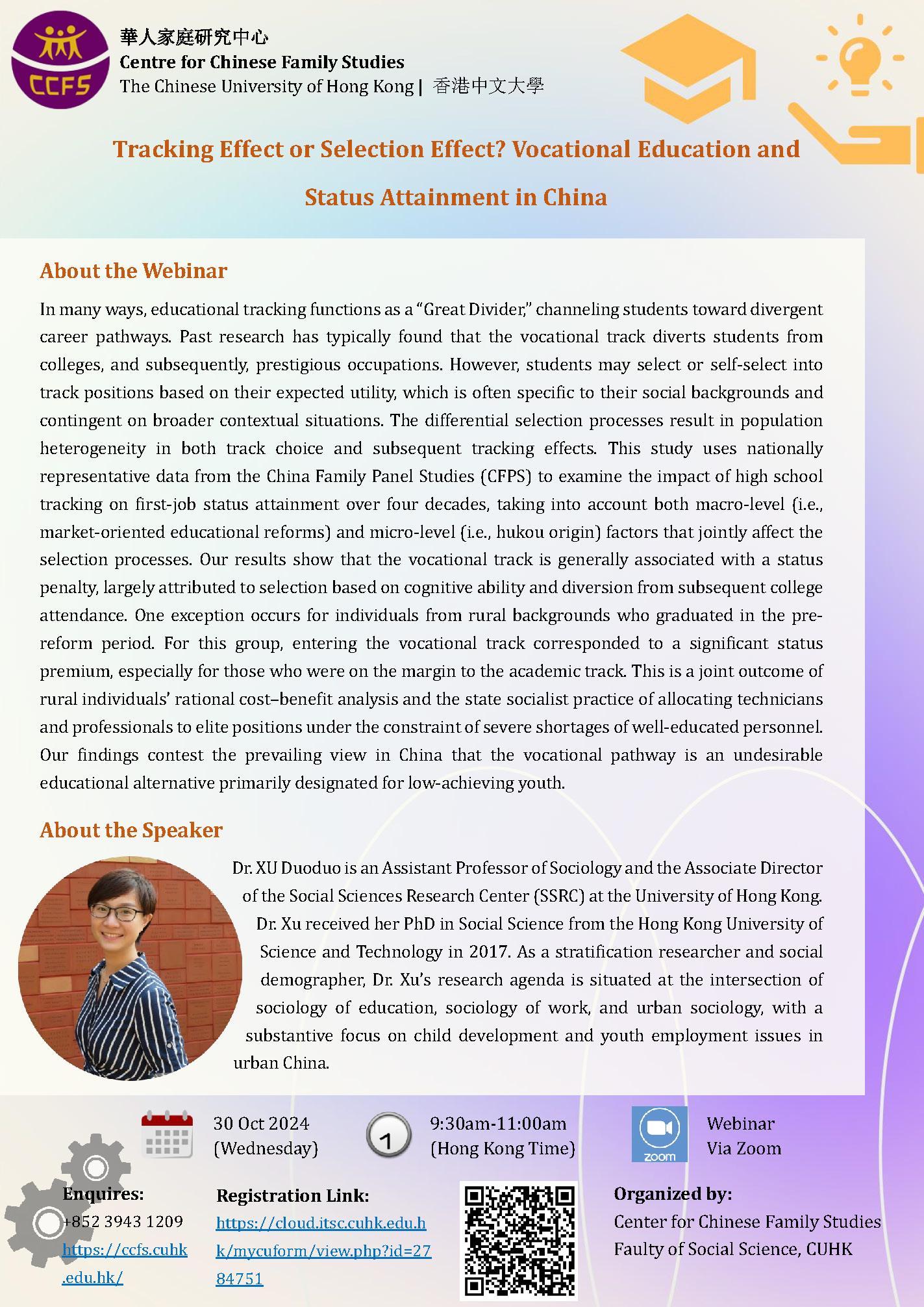Speaker: Dr Duoduo Xu (Assistant Professor, Department of Sociology, the University of Hong Kong)
Time: 9:30am-11:00am, 30 Oct 2024 (Wednesday, HK Time)
Venue: Zoom (ZOOM Link will be sent to registered audience after finished the e-registration.)
Registration: https://cloud.itsc.cuhk.edu.hk/mycuform/view.php?id=2784751
About the Webinar:
In many ways, educational tracking functions as a “Great Divider,” channeling students toward divergent career pathways. Past research has typically found that the vocational track diverts students from colleges, and subsequently, prestigious occupations. However, students may select or self-select into track positions based on their expected utility, which is often specific to their social backgrounds and contingent on broader contextual situations. The differential selection processes result in population heterogeneity in both track choice and subsequent tracking effects. This study uses nationally representative data from the China Family Panel Studies (CFPS) to examine the impact of high school tracking on first-job status attainment over four decades, taking into account both macro-level (i.e., market-oriented educational reforms) and micro-level (i.e., hukou origin) factors that jointly affect the selection processes. Our results show that the vocational track is generally associated with a status penalty, largely attributed to selection based on cognitive ability and diversion from subsequent college attendance. One exception occurs for individuals from rural backgrounds who graduated in the pre-reform period. For this group, entering the vocational track corresponded to a significant status premium, especially for those who were on the margin to the academic track. This is a joint outcome of rural individuals’ rational cost–benefit analysis and the state socialist practice of allocating technicians and professionals to elite positions under the constraint of severe shortages of well-educated personnel. Our findings contest the prevailing view in China that the vocational pathway is an undesirable educational alternative primarily designated for low-achieving youth.
About the Speaker: Dr Duoduo Xu is an Assistant Professor of Sociology and the Associate Director of the Social Sciences Research Center (SSRC) at the University of Hong Kong. Dr Xu received her PhD in Social Science from the Hong Kong University of Science and Technology in 2017. As a stratification researcher and social demographer, Dr Xu’s research agenda is situated at the intersection of sociology of education, sociology of work, and urban sociology, with a substantive focus on child development and youth employment issues in urban China.

